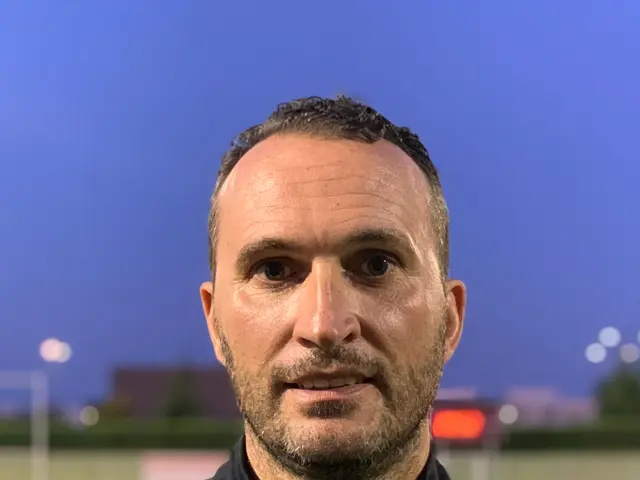Intense Israeli attacks in Gaza claimed the lives of around 80 people, rescuers report, as negotiations for hostage releases were ongoing.
FAIR WARNING: This text contains sensitive and potentially distressing content. Proceed with caution if you feel uncomfortable reading about it.
BLOODSHED IN GAZA: Scores of innocent lives were claimed in Gaza on Wednesday, as Israeli airstrikes left a trail of devastation and grief in their wake. The death toll stands at a heart-wrenching 80, with 59 fatalities reported in the northern part of the territory, according to the Civil Defense.
Israeli Prime Minister Benjamin Netanyahu spoke with US envoy Steve Witkoff about the release of hostages held captive in Gaza. ongoing negotiations for their release took place in the Qatari capital, Doha, where US President Donald Trump found himself during his visit on Wednesday. Netanyahu's office revealed that the premier discussed the hostage situation with Witkoff and his negotiating team.
Witkoff later reported that Trump had held a productive conversation with the Qatari emir regarding a potential Gaza deal. The envoy went on to emphasize that the team was moving forward with a solid plan.
Despite the ongoing talks, intense fighting continued to rage in Gaza. Images from the aftermath of a strike in Jabalia, northern Gaza, showcased mounds of debris and twisted metal from destroyed buildings. Distraught Palestinians, including children, were seen searching for their possessions amidst the ruins.
Sobs echoed throughout northern Gaza as mourners paid their respects to the dead, with one woman lamenting, "It's a nine-month-old baby. What did he do?"
Hasan Moqbel, a Palestinian who lost loved ones, revealed that there were no homes left suitable for living. He shared his plight, expressing, "I have no shelter, no food, no water. Those who don't die from air strikes die from hunger, and those who don't die from hunger die from lack of medicine."
Israel's military issued a warning to residents in certain parts of a Gaza City neighborhood, urging them to evacuate, as their forces prepared to launch an attack with "intense force."
From the occupied West Bank, Palestinian President Mahmud Abbas voiced a strong preference for a "ceasefire at any price" in Gaza, accusing Netanyahu of wanting to prolong the fighting "for his own reasons."
Meanwhile, emergency doctor Mohammad Awad of northern Gaza's Indonesian Hospital confirmed that his department was struggling to handle the influx of wounded from the Jabalia strike. The hospital was grappling with supply shortages, lack of beds, medicines, and surgical or medical treatment facilities, leaving doctors powerless to save many of the injured succumbing to their injuries.
Awad also reported that "the bodies of the martyrs are lying on the ground in hospital corridors after the morgue reached full capacity." The situation, he stated, was nothing short of catastrophic.
Israel imposed an aid blockade on the Gaza Strip on March 2, aggravating an already dire situation in the Palestinian territory due to shortages of food and medicine. The United Nations Secretary-General Antonio Guterres called for the immediate and unconditional release of all hostages, unimpeded humanitarian access, and an immediate cessation of hostilities in Gaza.
Italian Prime Minister Giorgia Meloni condemned the ongoing humanitarian crisis in Gaza as "ever more dramatic and unjustifiable." The ensuing situation generated international criticism for a US-led initiative for aid distribution under Israeli military supervision, which seemingly sought to sideline the United Nations and existing aid organizations and overhaul the current humanitarian structures in Gaza.
Medical organization Medecins Sans Frontieres pointed out that the proposed aid plan would make aid conditional on forced displacement and the vetting of the population. The organization went on to declare that Israel was creating "conditions for the eradication of Palestinian lives in Gaza."
As the tragedies continued, Israel's military resumed significant operations in Gaza, with officials later discussing the possibility of maintaining a long-term presence in the Palestinian territory. Despite a brief halt in air strikes during the release of US-Israeli hostage Edan Alexander, Israel resumed its assault on Gaza. Netanyahu signaled that his forces would enter Gaza "with full force" in the coming days.
In addition, Israel's government authorized an expansion of the current offensive earlier this month, with talks of the "conquest" of Gaza. Of the initial 251 hostages taken during Hamas's attack in October 2023, 57 remain in Gaza, including 34 individuals whom the military claims are dead. The attack resulted in the deaths of 1,218 people on the Israeli side, primarily civilians, according to AFP's tally based on official figures.
Israel's retaliatory offensive has so far claimed the lives of at least 52,928 people in Gaza, the majority of whom were civilians, according to statistics from the territory's Hamas-run health ministry, which UN experts deem reliable.
- The 'war-and-conflicts' section continues to unfold, as Israeli forces prepare for another large-scale attack in Gaza, raising concerns about the escalating 'crime-and-justice' situation.
- Meanwhile, in the realm of 'politics', Israeli President Mahmud Abbas calls for an immediate 'ceasefire', accusing Prime Minister Benjamin Netanyahu of prolonging the violence for personal reasons.
- Amidst the ongoing unrest, healthcare facilities in Gaza struggle to cope with the influx of wounded victims from 'car-accidents' caused by the heavy bombardment, adding to the 'general-news' stories of arson and destruction.








